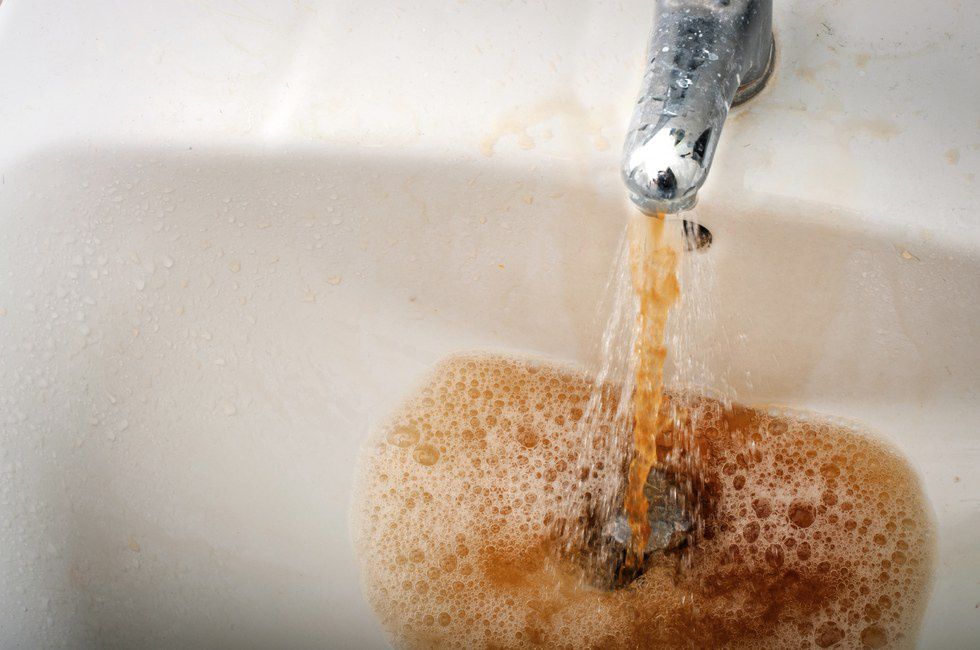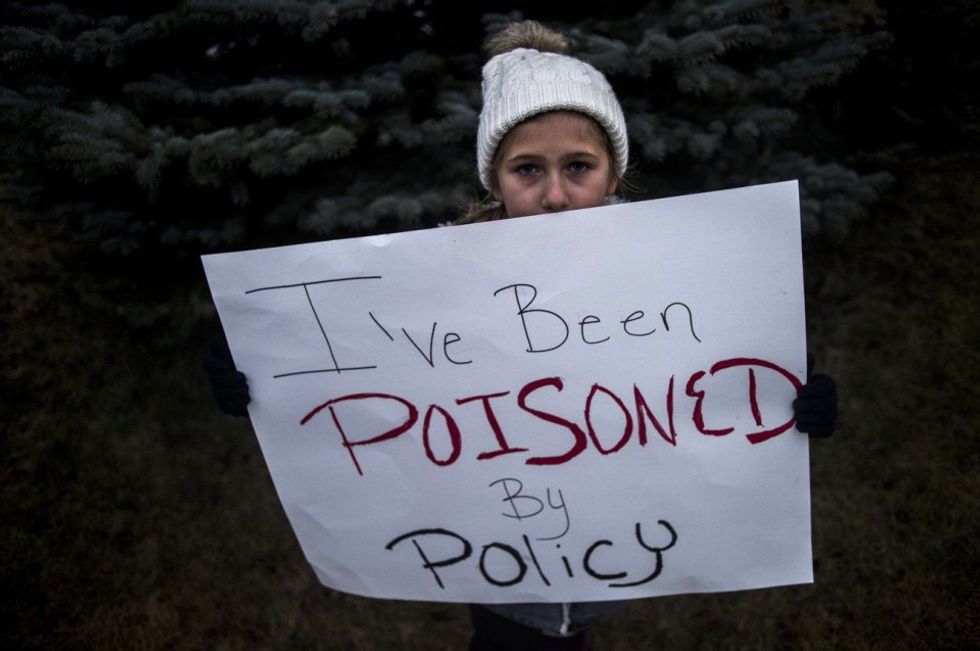In case you forgot.
Because the people affected by the Flint water crisis have not. They spend every day showering, cooking, cleaning, drinking, and otherwise utilizing contaminated water or bottled water in its place. Imagine washing your dishes with bottled water for almost three years. Imagine not having access to bottled water, instead watching your teeth fall out and your children develop severe and irreversible health conditions. Imagine being unable to leave or to fix the city you've built your life, your home, your family in during this time. Imagine having the entire nation watch your situation and yet still no permanent or substantial solution is implemented at all before they each turn their eyes to the next hot button issue. The Flint water crisis is not old news. It is ongoing.
If you've somehow missed what was going on or need a refresher, let me quickly recap. In 2011 the state took charge of the city's finances after realizing that they were projected to have a large deficit of $25 million. The water issue was sparked by a decision to reallocate funds from Flint's water management to the general fund (although the water fund was also in a deficit). CNN reports that "in order to reduce the water fund shortfall, the city switched water sources in 2014" to draw from the Flint River which has historically been a poor quality source instead of drawing from Lake Huron as they were before.
Unfortunately, the Flint River was more than just "poor quality." The Department of Environmental Quality had been illegally failing to treat the river, previously known for fecal bacteria, oils, and other toxic matter, leaving it 19 times more corrosive than the water from Lake Huron. The corrosive water eats away at the city's older lead pipes, contaminating the water with unsafe levels of lead. This has been ongoing since the switch in April 2014, but officials failed to declare the water a health risk and instead issued brief water-boil warnings on and off until early 2015. Since then city and state officials have failed to correct the health risk due to increased costs of switching back to Lake Huron water and other lack of resources.
You can find a detailed but concise timeline of the entire fiasco here.
Our leaders are responsible.
It's baffling that those who are elected or appointed to govern us will not only neglect to solve such a huge health concern, especially when it's their negligence that caused it initially. Officials repeatedly failed to correct even when given the chance and tried to downplay the severity of the situation despite many lead parts per billion results in tap water.
For example, In January of 2015 Flint officials refuse an offer made by the DWSD to reconnect the city to Lake Huron Water --even with four million dollars of the fee discounted-- due to concerns about the rates. The City Council actually even voted 7-1 to reconnect, but the state emergency manager overruled it due to his concerns about the cost yet again. We must ask ourselves here: WHY is money being put over the health of almost 100,000 residents? Why was their health compromised to save money in the first place? Even Obama failed to act on the situation when called upon. Snyder wrote to him in an attempt to declare Flint a "disaster" so that new pipes could be installed (at an estimated $55 million) in an urgent manner. Of course disasters are technically only natural disasters, and since this was a man-made offense it can must be declared an "emergency." Although it being a mistake of our leaders seems to be a cause for quicker corrective action in my opinion, Obama allocates just $5 million.
Many of our leaders responsible have already been charged with criminal offenses. This includes Nancy Peeler, Corinne Miller, Robert Scott, Liane Shekter-Smith, Adam Rosenthal, Patrick Cook, Darnell Earley, Gerald Ambrose, Howard Croft,Mike Glasgow, Stephen Busch and Michael Prysby. While many are brought to justice, others walk free of charge.
Flint isn't alone.
Sadly, Flint isn't the only American city experiencing water contamination right now. In an article dated in March of 2016, "nine counties nationwide report 10 percent of tests coming back positive for lead poisoning." Even prominent cities such as Philadelphia, Chicago and Boston are at a high risk and are allegedly skewing their test results by creating statistics based on fewer samples or samples from low-risk areas only (like homes without lead pipes as opposed to homes with them). At least 33 cities are skewing results in this way. Intentional lack of data is very dangerous. Yet we've heard nothing of these other areas experiencing widespread lead poisoning or unsafe testing practices.
The city's hardship continues.
Although Flint was reconnected to Lake Huron through Detroit's water system in October 2015, the damage has already been done to the pipes and they have not been replaced. Residents were warned that there may be continued issues and indeed there has been. Water filters were installed in homes, yet as of November 2016 "the state of Michigan and city of Flint are ordered to deliver bottled water to homes where the government hasn't checked to ensure that filters are working properly. In court documents, the leader of a nonprofit group helping residents said that as many as 52% of the water filters installed in a sample of more than 400 homes had problems." More than half of the filters are deficient. Bottled water is still necessary.
This month there was a Town Hall meeting held in Flint to address the water crisis. It has been established that residents should continue to use water filters in their home. Replacing the water service lines is estimated to take three years once it begins, but the money to replace them "has not been secured." Additionally, Flint's treatment plants need to be fixed, which would cost more than $100 million to upgrade. The city plans to switch water sources again, this time from the Karegnondi Water Authority, and yet they don't think they'll be ready to do this until 2020. Residents were not allowed to voice themselves, and showed their frustration by crumpling water bottles loudly during the meeting.
How can we help?
Contact your representatives. Your voice can be a pressuring influence.
Raise awareness. Share this article, share related content and tell your friends.
Become educated. Research the topic. The more you know about the water crisis, the more you'll be able to help.
Donate water or volunteer in Flint.









 mr and mrs potato head
StableDiffusion
mr and mrs potato head
StableDiffusion










